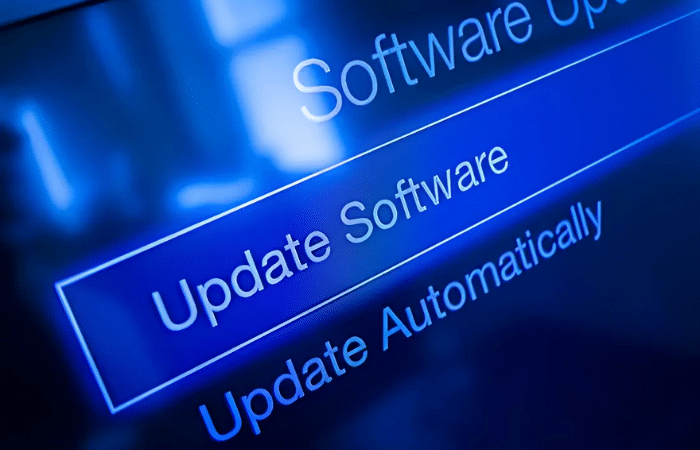11 Steps to Take If You Lose Your Wallet
There’s nothing more anxiety-inducing than realizing you’ve lost your wallet – or, even worse, that it’s been stolen. Many people’s initial reaction is to worry frantically, but you’ll be much better off by taking immediate action! Instead of letting yourself be overcome by fear, follow these eleven proactive steps after losing your wallet.
1. Call Your Debit Card Issuer
Of all the important items you keep in your wallet, your debit card is the most time-sensitive of them all.
When you call the bank or financial institution that issued your debit card, they will take immediate action in your favor. If your card was lost or stolen, they can either put a hold on your card or immediately cancel it. This will stop anyone that isn’t you from making any unauthorized purchases using your debit card.
If you alert your bank that your debit card is missing within two days, you will only be responsible for $50 of unauthorized purchases on your card. If you wait any longer, you could be held responsible for up to $500 in fraudulent purchases.
2. Call Your Bank And Freeze Your Checking Account
So you’ve gotten your debit card under control — but what about the other items in your wallet that contain your financial information? Many people still carry a checkbook in their wallet, or other personally identifiable information that could be linked to their checking account information.
In order to prevent thieves from making unauthorized payments using your checkbook, give your bank a call and have them put a hold on your checking account. This will prevent any further payments from being pushed through until you give the word.
3. Contact Your Credit Card Companies
Once you’ve got your debit card and checking account under control, it’s time to handle your credit cards. You will need to call the individual companies for each credit card that you have in your wallet.
When you call your credit card issuers, make sure to report your card as stolen, and request to have your credit card canceled. In conformance with the Fair Credit Billing Act, you will not be held responsible for any purchases made on your credit card if you reported that card stolen prior to it being used.
4. Report Your Missing Wallet To The Police
A lot of people think that filing a police report for their missing wallet isn’t worth their time, or that the police just won’t care. But this is far from the truth — and here’s why.
Promptly filing a police report plays a pivotal role in protecting your identity. If you were to become a victim of identity theft, you’d need to take immediate action to ensure that your identity is kept safe. In order to fill out some of the many forms and complaints to inform creditors and lenders about your identity theft, you’ll need to file a police report as evidence.
Even if you don’t become a victim of identity theft, filing a police report can help speed up necessary processes such as getting a new driver’s license.
5. Place A Fraud Alert On Your Credit Report
Take preventative measures against identity theft by calling one of the three national credit bureaus, and having them place a fraud alert on your credit report. You can choose from any of the three credit bureaus to call: TransUnion, Experian, or Equifax. The credit bureau you call will then alert the other two for you.
This fraud alert will remain on your credit report for 90 days. After that, lenders and creditors will take additional steps to verify your identity before opening new accounts in your name.
6. Take Further Steps To Protect Yourself From Identity Theft
Even after you’ve taken the above steps and canceled your cards and accounts, you might still be worried about the possibility of identity theft. Especially if you kept other cards in your wallet, such as your Social Security card, you could still be at risk.
There are many identity theft protection programs such as iLock360 that can help alert you to any suspicious activity that could put your identity at risk. These programs can also help you recover new versions of cards that you lost with your wallet.
7. Get A New Social Security Card
It is recommended that you never keep your Social Security card in your wallet, but if you made that mistake already, what can you do next?
Contact the Social Security Administration to get a new Social Security Card issued. It is rare for the administration to issue you an entirely new number, but if you can prove that your card was stolen, it’s possible that they will make an exception.
8. Replace Your Driver’s License
You’ll need to replace your driver’s license if it was in your wallet when you lost it.
Depending on what state you live in, you can either visit your local DMV in person or fill out a form on the official DMV website. Most states will require you to produce some form of identity, such as a bill with your name on it, so plan in advance if you’re visiting the DMV in person.
9. Consider Changing Your Locks
Some people keep a spare key in their wallet, and your current address is most likely listed on some of the cards that were in your wallet when you lost it. If you kept a key in your wallet, consider changing the locks to avoid becoming a victim to further property loss.
10. Regularly Check Your Credit Report For Suspicious Activity
Make sure to remain aware and alert of any suspicious activity on your credit reports after losing your wallet. The best way to do this is by using identity theft protection.
11. Make A List Of Everything That Was In Your Wallet
It could potentially be difficult to recall every item that was in your wallet when it went missing, and making a list can help make sure you aren’t forgetting anything you need.
Some common items you’ll want to remember and replace include health insurance cards, auto insurance policies, and gym memberships or parking passes.
Once you’ve followed these eleven steps after losing your wallet, you’ll likely be able to regain some peace of mind. Securing your finances and protecting your identity are the most important things to keep in mind after losing your wallet.





0 Comments